The ups and downs of the figures that President Gustavo Petro presented to Congress: he defended his administration and called for approval of health reform.

In his final speech before this Congress —and at the start of a term in which his government will strive to advance one of its most controversial reforms , that of healthcare—President Gustavo Petro offered a largely positive assessment of his three years in office, based on figures that began to generate controversy this Sunday, July 20 , and were questioned by the opposition.
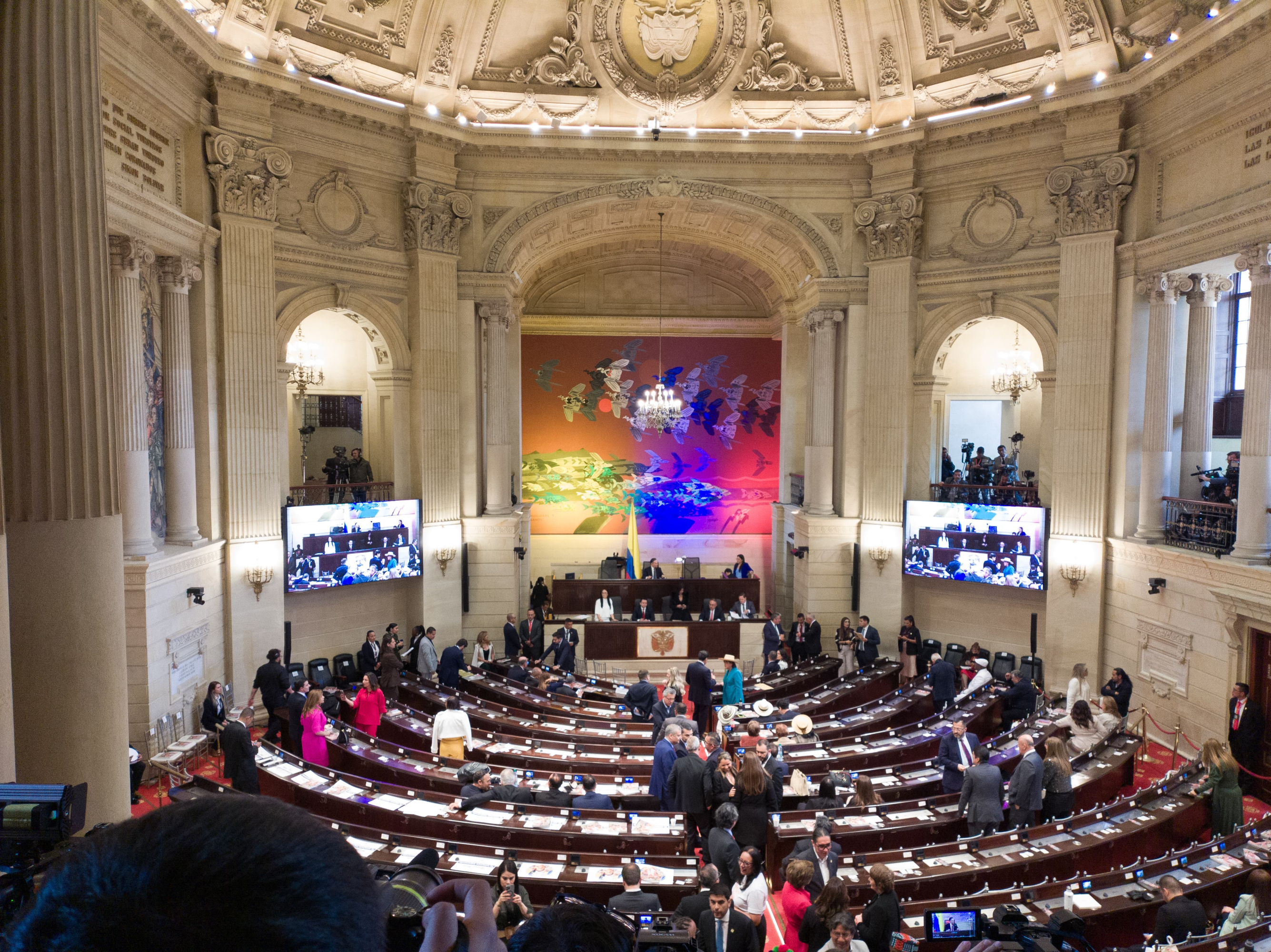
Congress inauguration today, July 20. Photo: Néstor Gómez. EL TIEMPO
The speech, which lasted two hours and 20 minutes, began with the economy, a field in which Petro asserted he has had "enormous success," such as the drop in inflation, which, he asserted, is not so much due to the policies of the Bank of the Republic and the change in global market conditions, but rather to the actions of his officials or even his own, such as the talks with the Maduro regime regarding the Monómeros company, a key fertilizer producer.
He also used partial figures to present a favorable outlook for the handling of the health sector—which is experiencing one of its worst crises on record—and asserted that, aside from the overall increase in homicides in the country, the security outlook is positive. However, he acknowledged that the "total peace" policy, the hallmark of his administration's early days, hasn't worked.
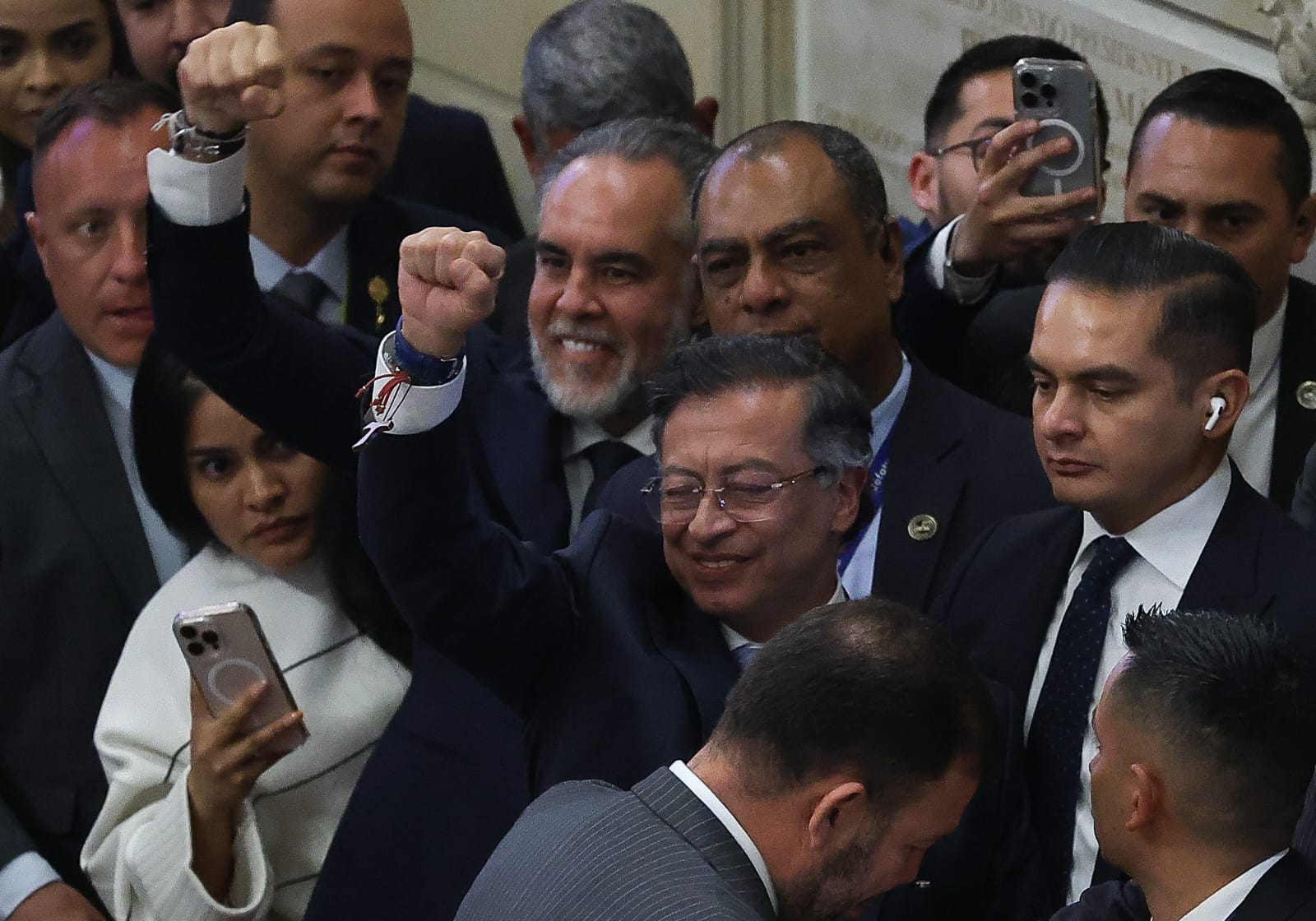
This is how Gustavo Petro left with his entourage. Photo: Néstor Gómez - EL TIEMPO
Petro listened to most of the opposition's speeches, starting with Senator Efraín Cepeda's harsh message, and on this occasion he made no personal attacks. However, he showed little sign of openness in discussing the issues that have generated the most political commotion, such as health care reform. And in his lengthy speech, he didn't mention words like "constituent assembly," "popular consultation," and others that marked the tensions throughout one of the most heated legislative sessions in the country's recent history.
Although his tone was measured, the head of state still had his barbs. Thus, even though it was news that made the front pages and headlines of every media outlet, Petro stated that the drop in inflation "was never mentioned in the press because the capitalist press, which is not the entire press, doesn't talk about the government but instead slanders and lies about me, not about the government's successes."
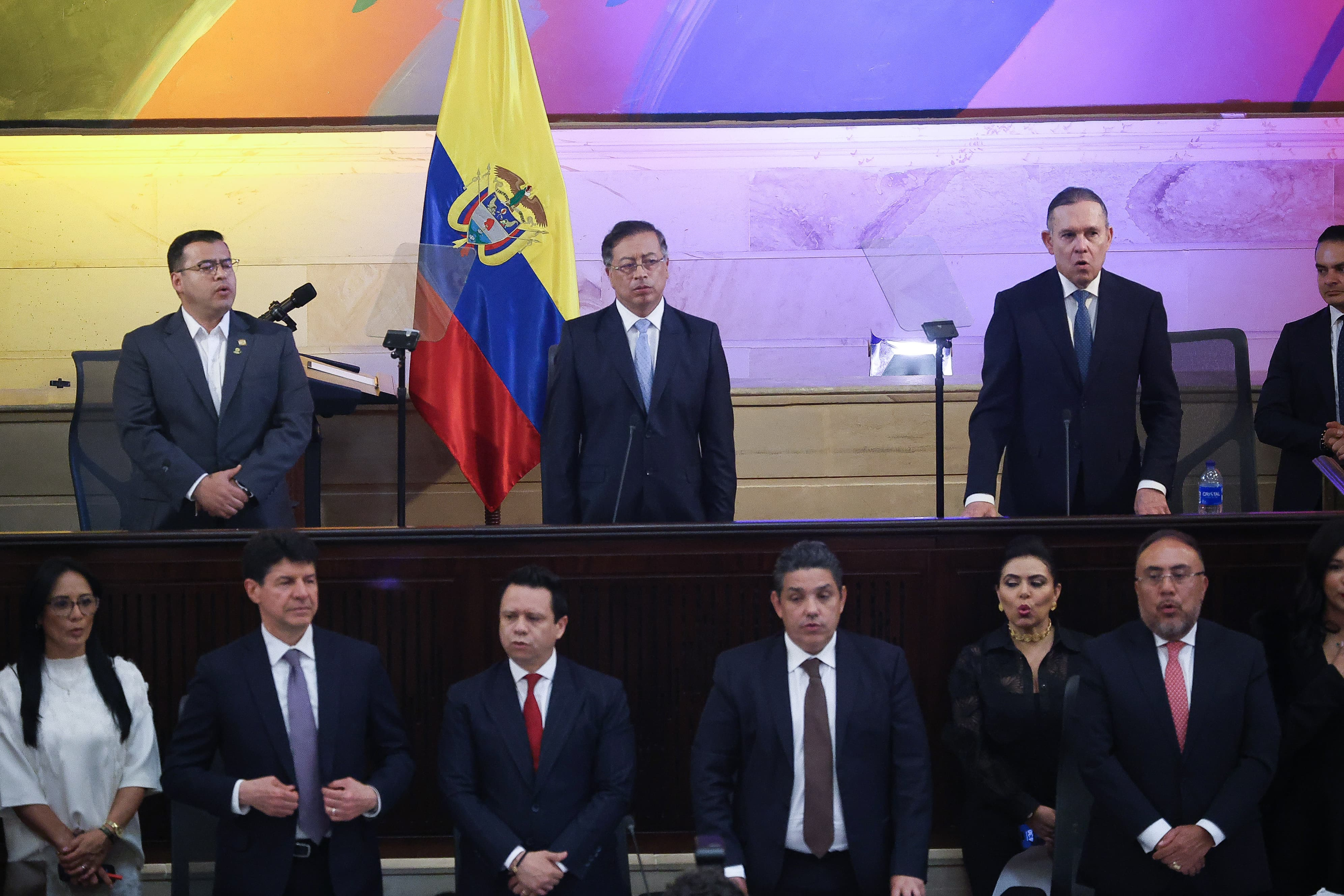
Jaime Raúl Salamanca, Gustavo Petro, and Efraín Cepeda at the opening of Congress. Photo: Néstor Gómez. EL TIEMPO
Another point the president highlighted was the growth of agriculture, which in the first quarter of 2025 showed positive figures, reaching 7.1 percent. He noted that this is thanks to the provision of land to farmers who are currently working it: "We have managed 601,000 hectares of fertile land through various means. Of those, 401,345 hectares have been purchased, because we have to buy them at market price."
One of the points that caused the most controversy was his explanation for the reduction in coal sales abroad, which he attributed not only to his government's policies targeting the sector—which historically was key to the nation's revenue—but to the progress of decarbonization policies around the world. According to the International Energy Agency (IEA), global coal consumption has recovered strongly after plummeting during the pandemic: in 2024, it reached a record figure estimated at 8.77 billion tons.
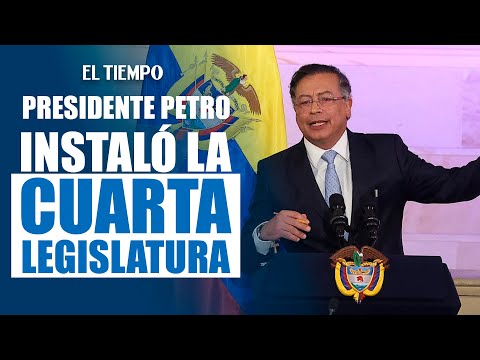
Photo: EL TIEMPO
Petro insisted on his controversial claim that coal exported from Colombia to Israel is allegedly used to make bombs "that kill children in Gaza" and said he would use international legal tools to disavow the trade agreements signed with that country before his government decided to break relations with Benjamin Netanyahu's government over its war in Palestine.
He also stated that he will promote forced investment by the banking sector in lending to small businesses because "the credit pact didn't work." This statement contradicts the Superintendency of Finance's statements, which indicate that in nine months, 115 billion pesos have been allocated to the five sectors prioritized by the government. The President again blamed Congress for not approving his underfunded 2025 budget and asserted that this is one of the reasons his administration has failed to fulfill its campaign promises.
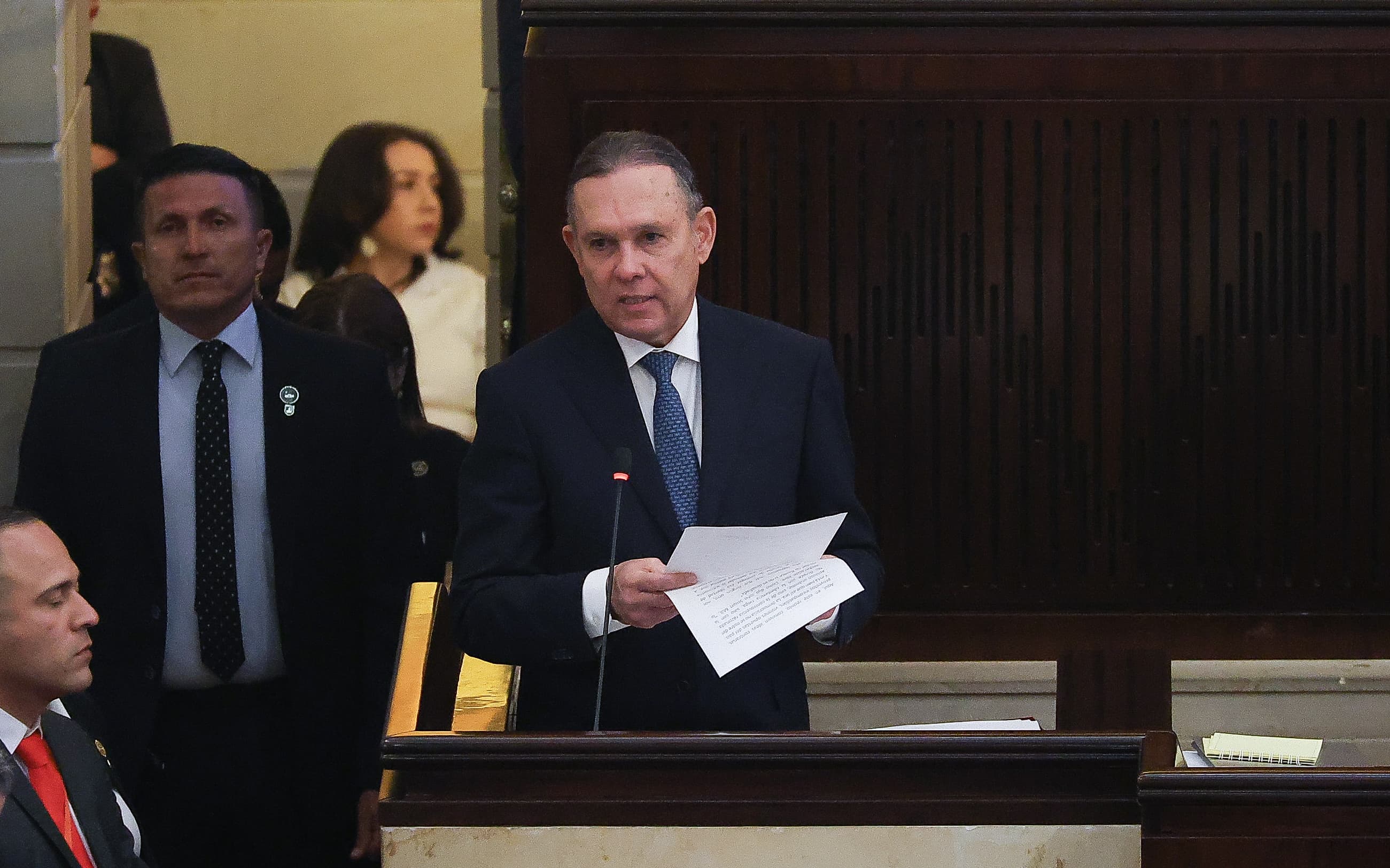
Photo caption : Néstor Gómez - EL TIEMPO
When it came to the topic of health, he defended the calculations he presented last week regarding the amount of EPS debt to clinics and hospitals, but he refrained from specifically mentioning the figure of 100 billion, which he supposedly mentioned based on an updated study by the Comptroller General's Office. The correct figure is 32.9 billion.
He highlighted that during his three years in office, the infant mortality rate has decreased, from 8,360 in 2022 to 5,833 in 2024, as has the mortality rate in children under 1 year of age due to malnutrition, which he noted fell from a rate of 11.6 in 2022 to 10.37 in 2024, resulting in 4,615 deaths last year.
There was no mention of the complaints or legal actions taken by patients at the intervened EPS (which increased by 177 percent in three years), the closure of medical services, or the orders of the Constitutional Court that Minister Guillermo Jaramillo—whom Petro praised before Congress—has not complied with.
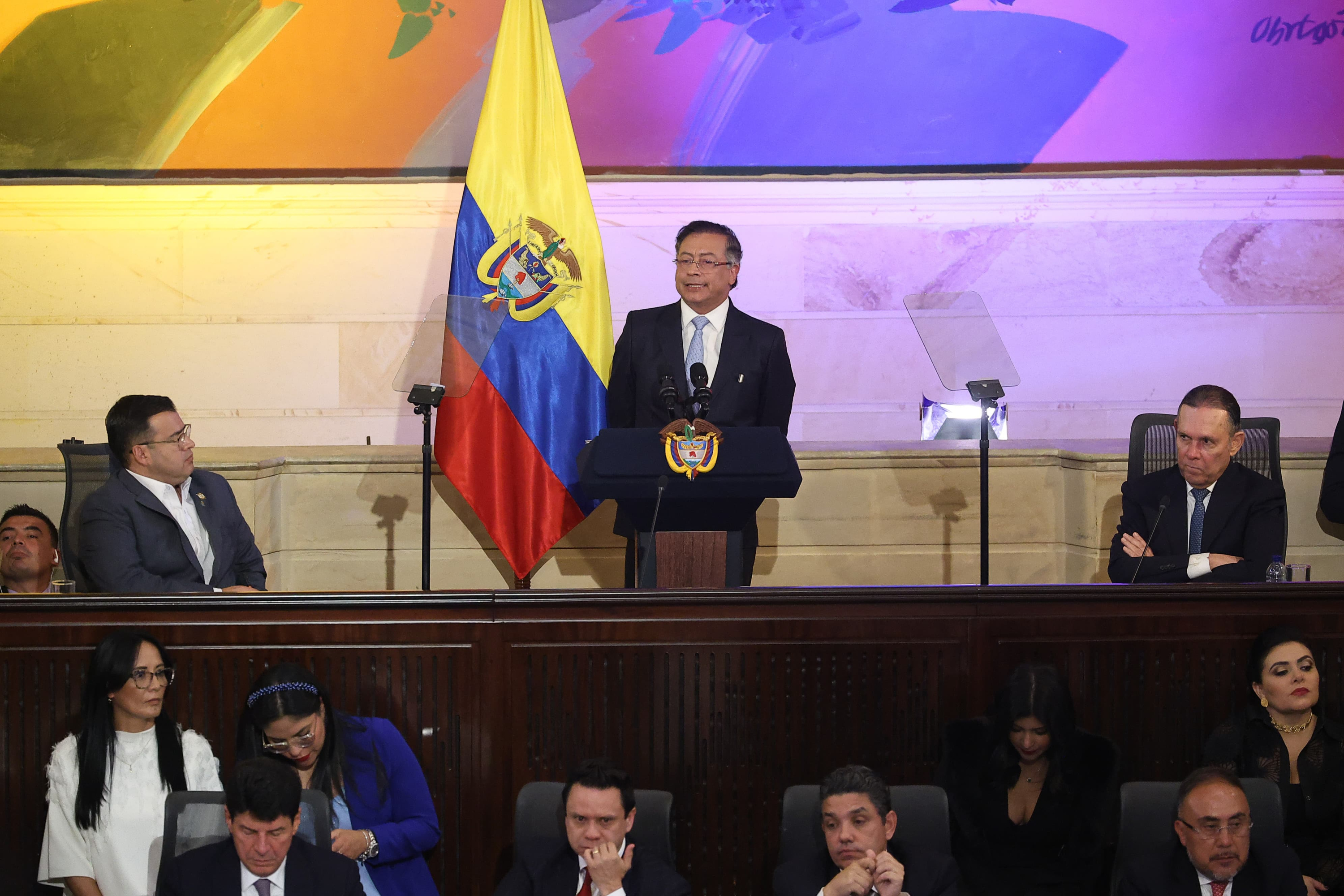
President Gustavo Petro. Photo: Néstor Gómez. EL TIEMPO
The head of state confirmed that the approval of his healthcare reform will be a priority in the final year of the legislative session. This bill is currently being processed in Senate Committee VII, the same committee that initially defeated the labor reform.
In closing his speech, he acknowledged that his government has failed in its goal of achieving "total peace." "The issue of security merits a thorough review, because this government obviously has not achieved 'total peace,' and security indicators are showing us a series of circumstances. We must review where we are going wrong and where we are getting it right," he stated. He used the last part of his speech to warn of the risks of what he called "quantum crime" and said that the true leaders of the gangs and dissidents are "in Dubai."
You may be interested 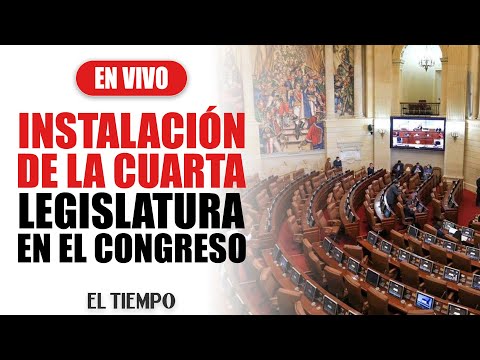
Petro is pushing his key reforms in his final term. Photo:
eltiempo





